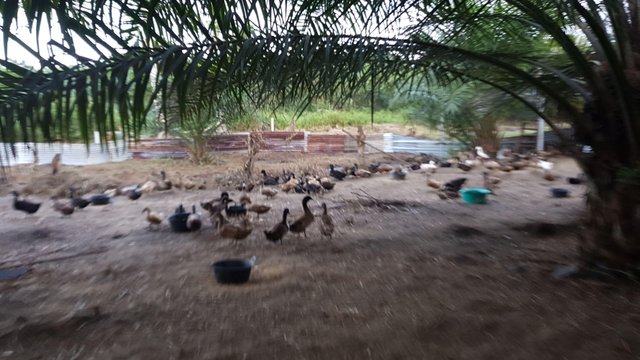Desa Entrepreneur Menjawab Tantangan MEA[Bilingual]

Selain nilai tukar Dolar terhadap Rupiah yang sudah menembus angka Rp 13.350-an, kerisauan apalagi yang paling menakutkan masyarakat Indonesia saat ini? Betul ASEAN Economy Community atau Masyarakat Ekonomi ASEAN (MEA) yang sudah diberlakukan awal 2016.
Memang masyarakat awam tidak ambil pusing apakah Dolar menguat atau i kita sudah diserbu perdagangan bebas gara-gara diterapkan MEA ini. Namun masyarakat pula sejatinya merasakan dampaknya guncangan ekonomi ini dan pemberlakuan MEA berbasis kawasan.
MEA menjadikan setiap industri setiap negara di kawasan ini bebas masuk ke semua negara lantas mengadakan aktivitas ekonomi tanpa intervensi otoritas kepabeanan setempat. Artinya, batas-batas antarnegara dalam konteks perdagangan barang, jasa, dan produksi pun lenyap. Di sektor lapangan kerja, pekerja asing bakal menyerbu dan membanjiri bursa tenaga kerja Indonesia.
Namun MEA tidak melulu mengabarkan berita sedih. Ia juga memberi kabar gembira. Kehadiran MEA diprediksi mampu menurunkan biaya transportasi dan telekomunikasi, bertambahnya pengguna internet, informasi kian mudah dan cepat diperoleh, dan meningkatnya investasi dan lapangan kerja.
Pertanyaannya sekarang adalah apakah kita menghindari tantangan ini lalu dihajar habis-habis oleh bangsa lain atau menghadapinya secara jantan dengan persiapan diri lebih matang? Apakah kita bangkit menyongsong tantangan atau memilih mati?
Di tengah pesimisme yang menggelayut, saya justru menyikapi MEA 2015 ini dengan optimisme tinggi bahwa Indonesia bakal mampu menjadi pelaku, pemain, dan subjek. Indonesia mampu mewarnai dan memainkan peran penting di panggung MEA. Kita mempunyai banyak modal untuk menjadi pemain di antaranya kekayaan sumber daya alam yang melimpah dan jumlah penduduk kelompok muda yang tinggi.
Namun kedua modal tadi tidaklah cukup. Harus ada konsep dan aksi realistis-aplikatif yang mampu memberdayakan masyarakat. Ketika masyarakat sudah terberdayakan dan mandiri otomatis mereka mampu menahan gempuran-gempuran yang ditimbulkan oleh MEA atau perdagangan bebas sejenis.
Untuk memberdayakan masyarakat, saya mengusung konsep Desa Entrepreneur. Mungkin beberapa teman pernah mendengar konsep ini walau secara parsial. Desa Entrepreneur menitikberatkan pada pengungkitan dan maksimalisasi sumber daya alam dan sumber daya manusia lokal yang bermuara pada pembiakan dan optimasi usaha-usaha kecil di pedesaan.
Tujuan akhir Desa Entrepreneur adalah lahirnya wirausahawan-wirausahawan baru yang tangguh secara ekonomi dan korporasi, dapat membuka lapangan kerja baru, dan Jadi penguatan usaha kecil menengah (UKM) adalah inti kekuatan dari Desa Entrepreneur. Pertanyaan berikutnya adalah mengapa UKM? Mengapa tidak industri kreatif?
Saya mencermati bahwa industri kreatif belum sepenuhnya dapat diimplementasikan di kawasan pedesaan atau pinggiran karena sarana dan prasarana masih belum sepenuhnya mendukung. Sumber daya manusia yang menggerakan roda industri ini juga relatif banyak berada di wilayah perkotaan dan kota pinggiran lainnya.
Berdasar pertimbangan di atas, saya yakin mengungkit usaha kecil menengah di kawasan pedesaan merupakan solusi paling masuk akal dan paling dimungkinkan. Lagi pula, mengaca kepada data terkini, UKM merupakan sektor paling powerful menyokong perekonomian di kawasan negara-negara ASEAN. Nyaris 96% usaha di ASEAN merupakan UKM dan sisanya 4% merupakan usaha kelas kakap. Di samping itu, lapangan kerja di negara-negara ASEAN juga disumbang 85% oleh UKM. Masih kurang? Sekitar 30-53% PDB ASEAN merupakan sumbangan UKM. Nah, kalau sudah begini akankah kita memandang sebelah mata terhadap UKM. Sesekali jangan!
Village Entrepreneurs Answering MEA Challenges
In addition to the Dollar exchange rate against the Rupiah that has penetrated the number Rp 13.350-an, worries let alone the most frightening Indonesian people today? Yes, the ASEAN Economy Community (MEA) is already in place by early 2016.
Indeed the ordinary people do not care whether the dollar strengthened or i we have invaded free trade because of this MEA applied. But the people also really feel the impact of this economic shock and the enforcement of regional-based MEA.
MEA makes every industry of every country in the region free to enter all countries then conduct economic activities without the intervention of local customs authorities. That is, the boundaries between countries in the context of trade in goods, services and production disappear. In the employment sector, foreign workers will invade and overwhelm the Indonesian labor market.
But the MEA does not merely preach sad news. He also gave the good news. The presence of MEA is predicted to reduce the cost of transportation and telecommunications, the increase of Internet users, information more easily and quickly obtained, and increased investment and employment.
The question now is whether we avoid this challenge and then be consumed by other nations or face it in a manly manner with more self-preparation? Do we rise up to challenge or choose to die?
In the midst of pessimism that hung, I just addressed this 2015 MEA with high optimism that Indonesia will be able to become the perpetrators, players, and subjects. Indonesia is able to color and play an important role on the MEA stage. We have a lot of capital to become a player among the abundant natural resources and high population of young people.
But these two modalities are not enough. There must be a concept and a realistic-applicative action that can empower the community. When people are empowered and autonomous they can automatically withstand the onslaught generated by MEA or similar free trade.
To empower the community, I carry the concept of Entrepreneur Village. Maybe some friends have heard of this concept though partially. Entrepreneur Village focuses on leverage and maximization of local natural resources and human resources that leads to the breeding and optimization of small-scale enterprises in rural areas.
The ultimate goal of Entrepreneur Village is the birth of new entrepreneurs who are economically and corporately resilient, able to open new jobs, and So the strengthening of small and medium enterprises (SMEs) is the core strength of Entrepreneur Village. The next question is why SMEs? Why not the creative industry?
I observe that creative industry is not yet fully implemented in rural or suburb areas because facilities and infrastructure are still not fully supportive. Human resources that move the wheel of this industry is also relatively much located in urban areas and other suburbs.
Based on the above considerations, I believe leveraging small to medium-sized businesses in rural areas is the most sensible and most feasible solution possible. Moreover, looking at the latest data, SMEs are the most powerful sector supporting the economy in the ASEAN region. Almost 96% of businesses in ASEAN are SMEs and the remaining 4% are big business. In addition, employment in ASEAN countries is also accounted for 85% by SMEs. Still not enough? Approximately 30-53% of ASEAN GDP is a contribution of SMEs. Well, if it's like this will we look at one eye to SMEs. Occasionally do not!

Tagline nya salah. Hehe
@resteemator is a new bot casting votes for its followers. Follow @resteemator and vote this comment to increase your chance to be voted in the future!
Congratulations @ulis1022018! You have completed some achievement on Steemit and have been rewarded with new badge(s) :
Click on any badge to view your own Board of Honor on SteemitBoard.
For more information about SteemitBoard, click here
If you no longer want to receive notifications, reply to this comment with the word
STOP